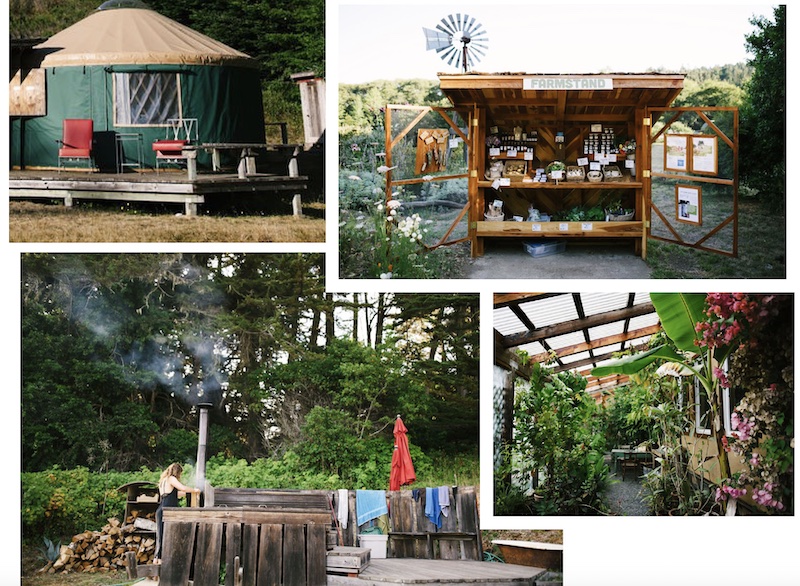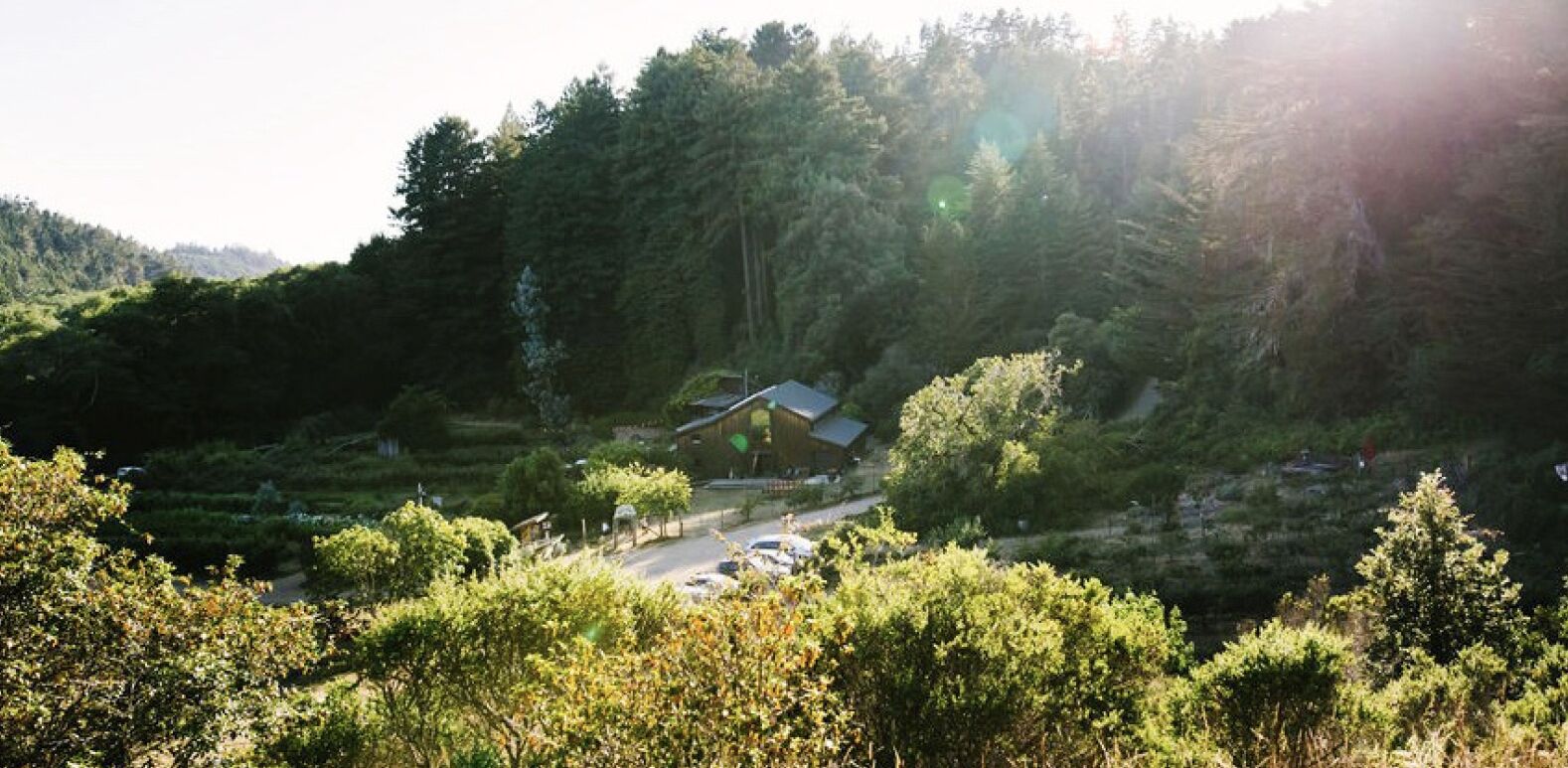This story appears in the Unplugged issue, available for sale here. See more of the issue here
In 1969, Lawrence “Redwood” Kroll mailed an invitation to his Christmas card list. He’d bought land in Mendocino County, three hours north of San Francisco. Anyone want to start a commune? The letter worked, and Village Oz was born. “It was a classic 1960s Summer of Love thing,” says Dean Fernandez, the former commune’s current owner. “They wanted to leave their default reality.”
The commune flourished — or at least scraped by — for about two decades before closing. Now, the land is Oz Farm: an organic farm, retreat space and perfect home base for exploring the culture of California’s North Coast. To get here, drive the Pacific Coast Highway from the city of Santa Rosa, just two hours away.
I visited Oz for a day with a friend who was shedding his own default reality. His tech job felt evil, he told me, in the face of climate change and consumerism, and in the midst of his new-life reboot, we met at the farm for their annual Earth Day celebration (The next one is scheduled for April 15-16, 2023). He ambled into the redwoods behind the barn for a workshop on mushroom growing; I walked toward sunny, rainwashed fields to investigate herbalism. Under a shade tree, then-retreat manager Margaret Grace passed around plantain leaf, for wound care; I recognized it as a lawn weed. I crushed feathery calendula leaves (sunburns) and California poppy (insomnia), then gingerly stroked stinging nettle (a diuretic).

Like the farm’s 10 apprentices, visitors sleep in commune-era dwellings. Guests may choose a Buckminster Fuller-esque geodesic dome, a Mendocino Coast-style water tower (built by the brother of singer Bonnie Raitt), a campsite or various cabins and yurts from $100 to $200 a night.
We continued our day picking herbs that grew between rows of vegetables, apple trees and flowers. Then we headed to the farm’s Community House to make tinctures and salves. To work toward local food self-sufficiency, Oz Farm is also experimenting with rye, barley and oats, with support from the Mendocino Grain Project. It does all of this completely off-grid. “We could probably run the entire farm off a Tesla battery,” Fernandez says.
But living off-grid is easier now than it was then. Fernandez gives ’70s-era pot farmers partial credit. Local cannabis growers needed — and, crucially, could afford — expensive early solar panels; they helped to kick-start the solar industry, making rural life here easier. Mendocino County’s cannabis economy bottomed out with legalization; now, tourism is filling the gap. Fernandez is proud of Oz Farm’s niche: not quite hotel, not quite camping. He calls the farm “a really good gateway drug to the outdoors.”
In return, visitors remind Fernandez to choose presence instead of distraction. To stay grounded in the realities of nature, the farm community has recently started doing their morning weeding in silent meditation.
My friend and I stuck around for folk music in the barn as the sun set, then parted ways. These days, he lives deep in the woods. I’m back in a city. Oz Farm reminded me that the real world is what we make of it.




